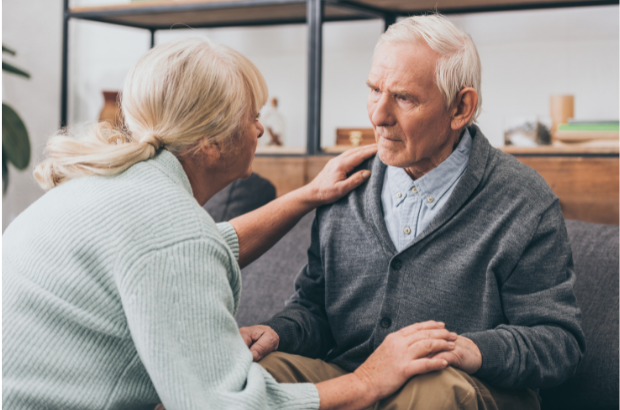(267) 778-9143

There are several different types of Alzheimer’s disease yet most people are only aware of one form of dementia. Dementia is an indication of gradual neurodegeneration. Dementia causes brain cells to die, and brain tissue to dissipate. In honor of National Alzheimer’s Disease Awareness Month, let’s take a look at the different types of dementia.
Early-onset Alzheimers is a type that occurs in individuals younger than 65-years-old. Those in their 40s and 50s who have early-onset Alzheimer’s experience brain alterations that scientists believe are tied to a defect in chromosome 14. Early-onset Alzheimer’s sufferers commonly experience myoclonus, meaning a spasm or muscle twitching.

Late-onset Alzheimer’s is by far the most common type of disease. This type of Alzheimer’s occurs in individuals age 65 on up. The medical community insists late-onset Alzheimer’s is not completely the result of genetics. It is unclear as to why some individuals experience late-onset Alzheimers and others do not, it might be because that a specific gene is responsible for late-onset Alzheimer’s
This is a very rare form of Alzheimer’s and it is often shortened to the acronym of FAD. The results for this type of Alzheimer’s disease are due to genetics. FAD is diagnosed in a patient who has at least two generations of the disease but only a few hundred people have genes that directly contribute to this causing them to start showing symptoms of the disease in their 30’s, 50’s and 50s.

Lewy body dementia also referred to by the acronym of LBD, impacts slightly more than 1.4 million people living in the United States. Robin Williams is the most notable public figure to have suffered from LBD. Lewy bodies build up within the brain’s nerve cells, reducing memory, and motor control functions.
This form of dementia affects the brain’s temporal and frontal lobes, leading to alterations in personality and behavior. An individual saddled by frontotemporal dementia often has difficulty with language, memory, and even movement. Inspire Home Care provides non-skilled services that can help seniors with Dementia such as medication reminders, assistance with movement and just being a companion who can keep you remembering the important things in your life.
Individuals who suffer a stroke or vascular accident experience brain damage and tissue loss, leading to dementia. Vascular dementia sufferers experience difficulty in planning, difficulty in decision making, and memory disorders.
Also referred to with the acronym of NPH, normal pressure hydrocephalus is a treatable form of dementia. This type of dementia occurs when an abundance of cerebrospinal fluid builds up within the ventricles in the brain. The expansion of the ventricles also compromises other brain tissue.

A patient who has a combination of Alzheimer’s disease with other dementia experiences mixed dementia. The combination of two distinct types of dementia makes life quite challenging without the assistance of a home care provider.
Our Philadelphia caregivers have the expertise, skill, and knowledge necessary to help you or your loved one live in comfort without leaving your home. If you have a family member suffering from dementia or in need of assistance with the activities of daily living, don’t attempt to provide the entirety of care on your own. Our Philadelphia caregiving team is here to help. Reach out to us today at 215-576-CARE (2273) or through our contact form to coordinate care for your loved one.

Inspiring you to live independently